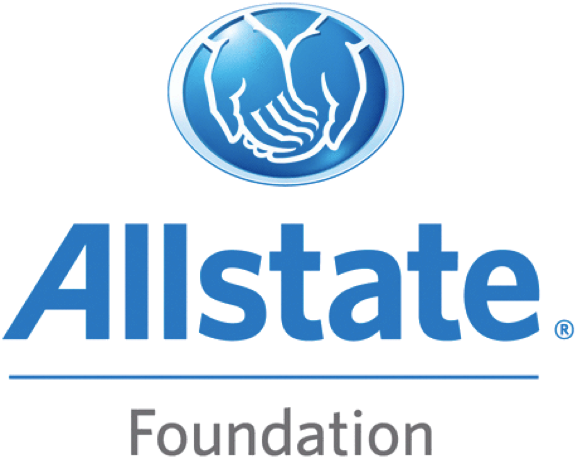Two-Thirds of Parents Wish They Spent More Time Teaching Their Teen to Drive in High-Risk Situations
More than half of teens say they want more time behind the wheel with their parents
Audio File
NORTHBROOK, Ill., March 15, 2013 /3BL Media/ – Research from The Allstate Foundation shows nearly half of parents express regret about not monitoring their teen driver after they get a license, and more than two-thirds wish they spent more time practicing driving with their teen in high-risk situations. To help educate parents on driving risks, The Allstate Foundation is helping the National Safety Council launch Drive it Home, a new program offering specially created resources to help parents keep their teens safer on the road.
Drive it Home, created by parents for parents, is specifically targeted at parents after their teen gets a driver’s license; that is one of the deadliest years in a person’s life. Drive it Home uses a variety of video and graphic styles, including humor to capture the attention of parents, educate them on the real dangers facing their teens and help them provide ongoing coaching tips for recently licensed teen drivers.
“We know from our research that parents are the No.1 source of information for teen drivers, yet 40 percent don’t know car crashes are the leading cause of death for teens,” said Vicky Dinges, vice president of corporate social responsibility at Allstate. “Drive it Home can help protect teen drivers, educate parents on the crucial role they play in the driving process, and help ensure our sons and daughters return home each and every night.”
Additional findings from The Allstate Foundation’s research include:
o Parents don’t understand the most deadly risks to their teen driver. Research shows that inexperience is the No. 1 cause of teen crashes, but 74 percent of parents inaccurately believe that risk-taking is the leading cause.
o Despite the fact that nine in 10 parents say it’s very important for teens to learn to manage night driving and driving with passengers, one in three parents admit they have not adequately covered these items with their teen.
o Nearly 30 percent of parents are not setting rules around some of the most dangerous behaviors including nighttime driving and passengers in the car. Many parents also don’t require their teen to get permission before driving somewhere.
o Sixty-four percent of parents are actively looking for resources to help manage their teens’ driving experience.
“Parents are looking for information that can help them manage their teens’ driving experience and need additional tools that take a variety of non-traditional approaches to capture their attention,” said Janet Froetscher, chief executive officer at the National Safety Council. “The National Safety Council researched the behaviors and messages that appealed most with parents and used it to inform the Drive it Home program. We know different parents respond to different kinds of messages. One technique we use is humor, for instance. While this is an extremely serious issue, we know that comedy can appeal to everyone and we were able to weave important tips, tools and statistics into the content for the program.”
Tips for Parents. The Allstate Foundation and National Safety Council urge parents to take these simple steps with their teen driver:
o Drive at least 30 minutes each week with a newly licensed teen.
o Practice specific skills together and provide teens with feedback in the following critical areas:
o Scanning the road ahead to recognize and respond to hazards.
o Controlling speed, stopping, turning and following distance.
o Judging the gap between vehicles in traffic – such as exiting parking lots and left-hand turns.
o Managing the highest risks, such as night driving and driving with young passengers.
Parents looking for practice tips they can use with their teen driver can sign up on the Drive it Home website (www.driveithome.org) for weekly driving practice lessons delivered to them via email.
Additionally, as a part of the program, Drive it Home is coming to cities across the country in a series of shows featuring Second City Communications. The shows take a comedic approach to the topic of teen safe driving and give local parents the chance to win a free Chevy Cruze and gas cards. To get additional information on the dates of the tour, visit www.driveithome.org.
The Drive it Home Show is coming to the following cities:
|
Greenville, South Carolina |
East Islip, New York |
|
Sacramento, California |
Middletown, New Jersey |
|
Virginia Beach, Virginia |
Seattle, Washington |
|
Phoenix, Arizona |
Plano, Texas |
|
Fort Myers, Florida |
Nashville, Tennessee |
|
Harrisburg, Pennsylvania |
Rockford, Illinois |
|
Grand Rapids, Michigan |
Colorado Springs, Colorado |
Funding for Drive it Home was provided by; the National Safety Council, The Allstate Foundation, General Motors Foundation, AT&T Foundation, Toyota Foundation.
About The Allstate Foundation
Established in 1952, The Allstate Foundation is an independent, charitable organization made possible by subsidiaries of The Allstate Corporation (NYSE: ALL). Through partnerships with nonprofit organizations across the country, The Allstate Foundation brings the relationships, reputation and resources of Allstate to support innovative and lasting solutions that enhance people’s well-being and prosperity. With a focus on teen safe driving and building financial independence for domestic violence survivors, The Allstate Foundation also promotes safe and vital communities; tolerance, inclusion, and diversity; and economic empowerment. For more information, visit www.AllstateFoundation.org.
About the National Safety Council
Founded in 1913 and chartered by Congress, the National Safety Council (nsc.org) is a nonprofit organization whose mission is to save lives by preventing injuries and deaths at work, in homes and communities, and on the road through leadership, research, education and advocacy. NSC advances this mission by partnering with businesses, government agencies, elected officials and the public in areas where we can make the most impact – distracted driving, teen driving, workplace safety and prescription drug overdoses.
# # #

